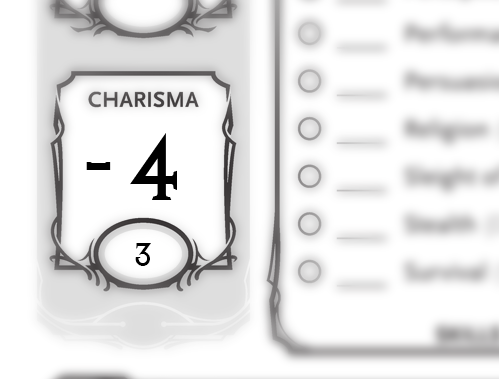
How to Deal with Problem Players at Your Game Night
In all my many years of rolling d20s at Dungeons & Dragons night, I have had surprisingly few conflicts with other players. There was that one “wolf” incident where I kicked a friend out of my apartment in college (looking at you, Clay). But other than some minor disagreements have had no interactions with toxic players or DM’s. However, I am one of the lucky ones. I have read many horror stories. So how should a group of players or a Dungeon Master deal with a problem player?
Dealing with problem players often boils down to establishing expectations and boundaries and adhering to them. The people in the best position to both define and enforce these boundaries are the Dungeon Master or a player who is physically hosting the game.

As we have written about before in our article on how to be a better Dungeon Master, the main goal of game night should be ensuring everyone has fun. Often times toxic players have a goal of themselves having fun, even if it comes at everyone else’s expense. The following are some practical tips on dealing with problem players.
Set Expectations
One of the best ways to deal with toxic behavior is to prevent it altogether. Whenever I begin a new campaign, I have a Session Zero where we cover some backstory but also lay down some rules and expectations. Some campaigns it’s ok to allow phones and tablets at the table. Other games might be set in a very archaic and desperate region of the world and using only pen and paper makes the mood more appropriate. Or it could be you have a player that is very distracting to others playing Candy Crush or constantly texting their significant other. I may or may not permit alcohol consumption if it becomes a distraction or detriment. Meta-gaming ist verboten. And I certainly do not, under any circumstances, permit toxic behavior at the table. These are the so-called ground rules that I set or consider when I am Dungeon Master.
In addition, I also invite other players to suggest some ground rules. I once had a player suggest we ban conversations surrounding politics at game night, and I loved it. Even though we are all friends, we do have some different political views. And while we can talk about them in a respectful way, we found they were distracting from the enjoyment of the game and some of the players were getting irritated prior to the game. So the suggestion to ban political talk outright was, in my mind, one of the better player suggestions to date.
The point is, we set these ground rules and abide by them. They are a sort of “terms of service” for the game. If you want to play in this game, you agree to these rules. And anyone is allowed to point out that someone else is in violation of the rules, even the Dungeon Master or the creator of said rules!
Establish Boundaries
The following is simply good life advice; game night notwithstanding. All relationships boil down to establishing and respecting boundaries. That includes relationships with family, friends, significant others, coworkers, etc. Boundaries are your rules for how people are allowed to interact with you. For example, you may not use racial slurs in front of me, even jokingly. You may not make disparaging remarks about my, or someone else’s appearance in front of me. I have good friends who have anxiety about being touched, and they do not allow people to hug them without their consent.
Just because I would never choose to establish a boundary about hugging does not mean I have a right to mock other people about their boundaries. Friends will respect your boundaries, toxic people will mock your boundaries.
“Friends will respect your boundaries. Toxic people will mock your boundaries.”
Establishing boundaries is what you can (and should) do when situations come up that are not covered or protected by the ground rules. If you do not like someone constantly flirting with you during the game, establish a boundary that it’s not ok. Don’t like someone talking down to you constantly? Establish that boundary. Don’t like players going into your refrigerator and cleaning out your snacks without permission? Set that boundary.
Remember, as motivational speaker Tony Gaskins so eloquently puts, “you teach people how to treat you by what you allow, what you stop, and what you reinforce.” It’s a great quote and Mr. Gaskins is talking about boundaries. You have the right to use them, and anyone who refuses to respect them is not a friend or ally.
“You teach people how to treat you by what you allow, what you stop, and what you reinforce.”
Tony A. Gaskins
Discussing Problems with Players
Inevitably, problems will pop up. Humans are social creatures with paleolithic, lizard brains. It’s easy for us to get offended or simply have a conflict with another person. That certainly does not mean it’s time to dissolve the group. But it does mean it’s time to talk things through. When you have to bring a concern to someone do so politely, but firmly and always in private. Do not put someone on blast about their behavior in front of others. When it comes to addressing problem behaviors with people, it’s always the best policy to praise in public, and criticize in private.
If you have a conflict with another person or you feel like their attitude or actions are being a detriment to game night, you have an obligation to talk with them gently. Do it in private. Explain what they’re doing and the problem that’s occurring as a result. Explain how they may be making others feel. In our blog post on “How to be a Better Dungeon Master,” we describe an incident where we brought some concerns to our Dungeon Master and he basically laughed at us. He blamed us, told us our concerns were ridiculous. Our campaign ended a session or two after that talk. The lesson here is if the person is not receptive to your concerns, it may be time to excuse them from the game.
“When it comes to addressing problem behaviors with people, it’s always the best policy to praise in public, and criticize in private.”
Problems are less of a concern to me than what happens when you bring a concern to someone. People may not realize they’re being boisterous or intimidating others. They may not realize they’re dominating the conversation and decision-making. How they act once you bring that concern to them should be the real indicator. As already mentioned, people who are quality people will listen and try to make adjustments to make others feel more at ease. Toxic people will mock, belittle, or downplay your concerns or try to gaslight you into thinking it’s in your head. These people do not belong at your game. Nothing will ruin a campaign faster than someone being unpleasant to be around.
When You Have a Problem In-Game
There have been a few times when tensions escalated in-game. Either a player did something unbelievably ill-advised or the Dungeon Master simply made a bad call. These situations are difficult but there is a proper way to handle both.
If you have a player who keeps making bad choices because they think they’re being a renegade, then bump them down a few notches. Give them a cursed item, or have them upset someone very powerful in-game. There’s always a bigger fish. Have them arrested by the local authorities and thrown in jail. I once had a player who made a very dumb decision because he thought he was being a tough guy. He was arrested by the local authorities. For the entire four-hour session he sat in jail while his teammates plotted his escape.
I made the other party members jump through all kinds of hoops, get forged documents, perform favors for people willing to grease the palms of local officials. We turned it into a fun side quest. Well, fun for everyone except the guy sitting in jail all night with nothing to do. He got the message.
If you are a Dungeon Master, teach players that terrible decisions have consequences. Trust me, you will appreciate doing this in the long-run.
Now, there’s a more unique situation when you disagree with a Dungeon Master ruling. Early in the article I referenced a situation with Clay that happened a long time ago. We were running a game and there was six of us. Clay wanted to try something and I told him he was not able to do so. Not having any better knowledge at the time, I was just flat wrong. Mechanically he most certainly could have done what he wanted to do in-game. I made a bad call. But he would not let it go. He yelled at me for several minutes about it. I was done arguing and it was time to move on.
For the next 30 minutes he kept making passive aggressive comments. For example, I would ask him what his character wants to do and he would reply with “well, what I wanted to do was X, but apparently that’s not allowed.” His behavior was becoming a distraction to the game and the players. So I finally told him to drop it or else I would kick him out of the apartment. He basically said no, so I kicked him out (setting and adhering to boundaries).
Clay was in the wrong. Yes, I made a bad call but he escalated the situation by making it much worse and super uncomfortable for everyone else. Sometimes Dungeon Masters will make bad calls. We are human. That does not give you an excuse to ruin the game for everyone else.
After the session ended, one of the other players pulled me aside (privately) and said, “Hey I just wanted to let you know that Clay was right, he could have done that.” And he went on to explain why. He handled the situation correctly. He recognized I made a bad call, but let it go so as not to interfere with the game, and then spoke with me about it afterwards. That’s an excellent way to handle those types of things.
In Conclusion
You are not a bad person, or a bad Dungeon Master for setting rules and boundaries and expecting other players to adhere to them. Speak with problem players in private and if they’re willing to listen, afford them every opportunity to improve the situation. If they’re not receptive, time to excuse them from the game. Happy gaming!
